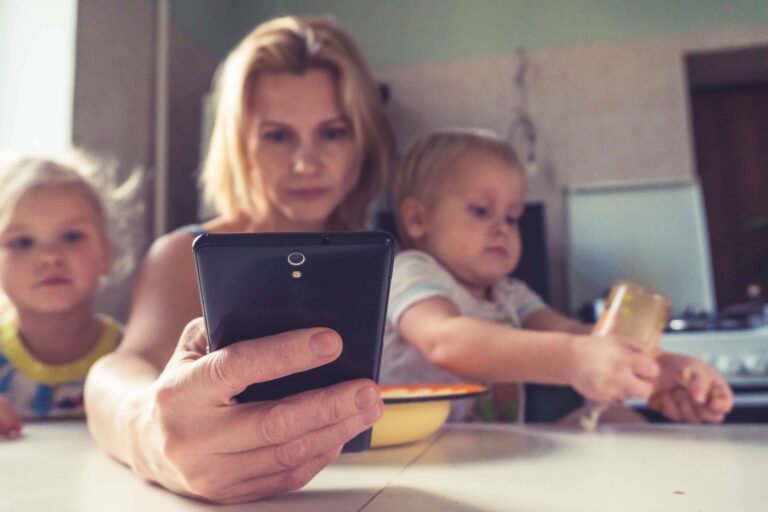
As Mother’s Day approaches, it’s a time to celebrate the women who have nurtured, loved, and inspired us throughout our lives. However, being a mom doesn’t come without its challenges, and when coupled with running a business, it can often feel like a juggling act.
In honour of Mother’s Day, Fintech.ca is showcasing female leaders within Canada’s fintech space who have found triumph in balancing motherhood and their professional lives.
We talked to successful women such as Anna Smith, Head of Marketing of CapIntel, Erin Bury, Co-founder and CEO of Willful, Cécile Grimault, Chief Operating Officer, BNP Paribas in Canada, and Angelique de Montbrun, CMO of Mydoh.
In this article, they reflect on their journeys in financial literacy, their lessons from building both a business and a family, the strategies they employ to maintain a healthy work-life balance with a family at home and insights into what it means to start a business as a mother.
Anna Smith, Head of Marketing of CapIntel
Growing up and learning to manage money through lived experiences, I discovered that some of those life lessons can be painful with no guarantee of success. A trial-and-error approach to financial literacy also meant that I was more likely to make mistakes as I learned to save, budget, and invest.
Now that I am a mother, I want to give my daughter access to the resources and support I never had to be as independent and confident as possible. One of the most significant ways I can do this is by instilling in her the value of financial literacy.
By teaching her to be financially independent, I am setting her up for a future where she can make sound decisions with money and have the freedom to achieve her dreams. This includes setting up custodial, educational savings, and regular savings accounts for her while teaching her smart saving skills, proper budgeting and financial goal setting, and working with trusted financial professionals to make sound investments that will allow her to grow wealth through diversified portfolios.
Erin Bury, Co-founder and CEO of Willful
When our daughter Emilia was born in 2021, I wanted to set her up for future success and ensure she was protected if anything happened to me or my husband. I learned about the logistical things I needed to take care of, like registering for her SIN number, registering for the Canada Child Benefit, and opening an RESP account to get government-matching funds for her education savings.
I updated my Willful will to add her as a beneficiary and added a guardian in case anything happened to us. We updated our workplace benefits to add her as a dependent, and we already had life insurance in place. Now that my will is updated, we have ample life insurance, and we’re funding her RESP, I feel like we’re organized parents! I also pulled together this guide to personal finances for new parents, so hopefully, it’s helpful to any expecting parents out there.”
Cécile Grimault, Chief Operating Officer, BNP Paribas in Canada
I believe that one can do anything but not everything one wants, and that is ok! Priorities will shift over time, and it is important to know what and who needs your attention at any given moment, be it at work or at home. Sometimes that means prioritizing yourself and accepting that there will be moments when you will not be in control.
I recommend being open to outsourcing household tasks which will allow you to focus on the important things in life. Lastly, recognize that you will have moments when you will need to ask for help; having a supportive partner is certainly another important factor in your success!’
Angelique de Montbrun, CMO of Mydoh
The best way to raise money-smart kids is to ensure the education around money is ongoing – discuss it often, and integrate goals, allowances, saving and other aspects of money into your everyday life. Kids can start to learn about money from a young age, so establishing that exposure early is a massive benefit. It can be as simple as involving kids in conversations around money like groceries, and as they get older, giving them more independence with their own money.
By setting our own goals for how we want to support their financial literacy, and getting our kids to set their own goals, we help them establish a sense of responsibility and accountability with their money.
Our relationship with money is lifelong, and it takes practice. With my kids, we often talk about what is a need versus a want, to not spend more than they earn, and how they feel about those concepts. I work to help my kids better understand the language of money with tools like a budget, and through the Mydoh app, which lets them have ownership over their money, and me have line of sight into how they are managing their money. By collaborating on what their needs, wants, and goals are, and by openly talking about how they manage their money, I’m helping them practice important financial skills that will set them up for future healthy habits.


Leave a Reply